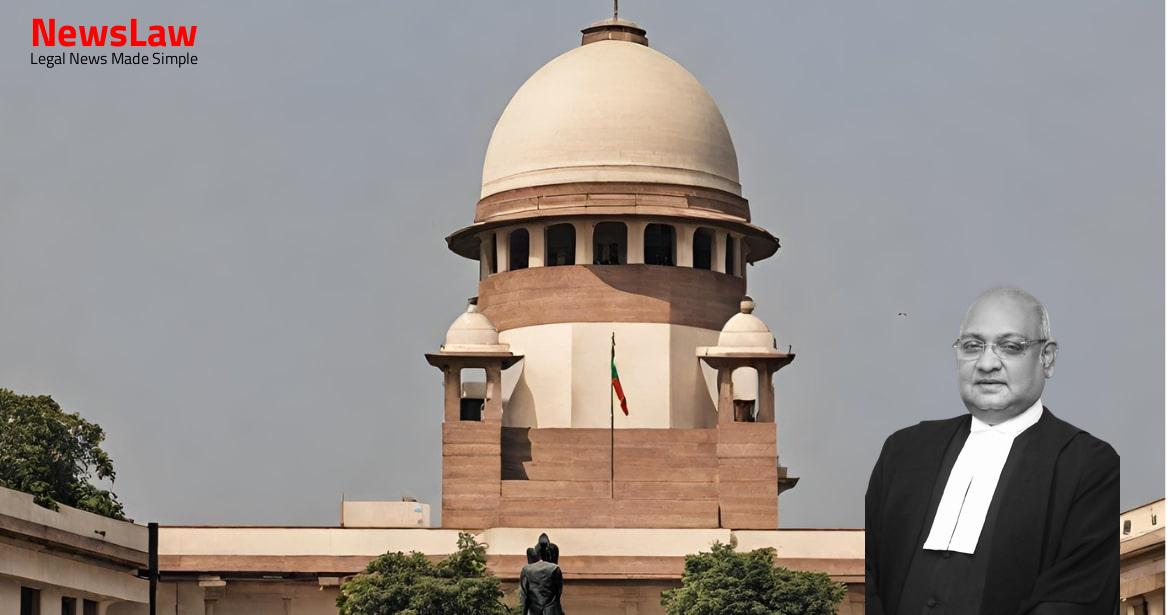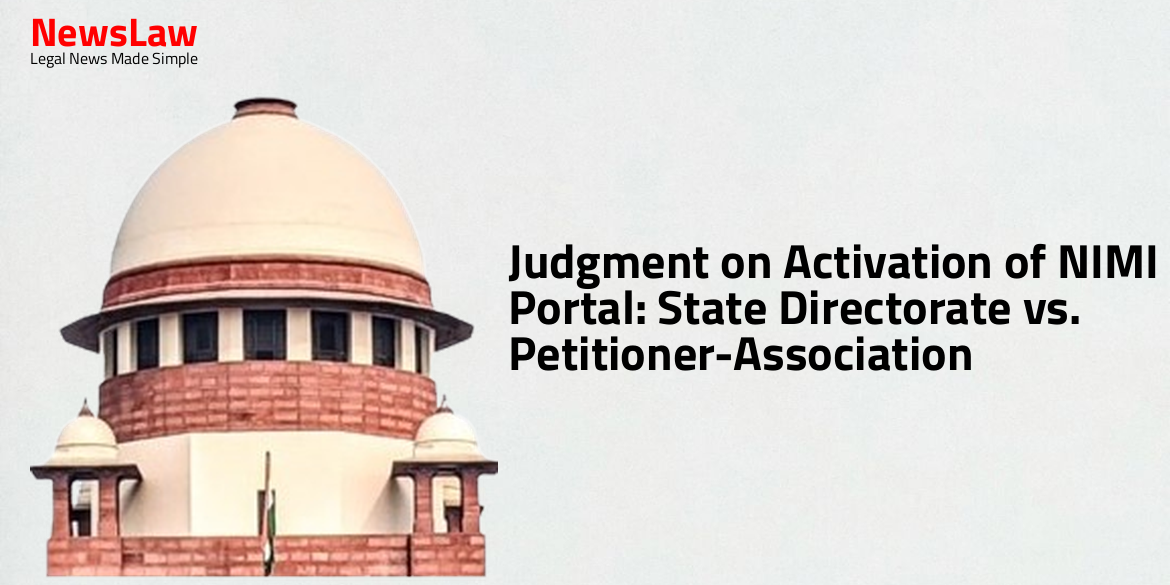In a recent landmark legal case, the National Consumer Disputes Redressal Commission (NCDRC) has issued an order in favor of consumer rights. The judgment involves a complaint filed by the respondent for deficiency in service leading to the cancellation of the booking and forfeiture of deposits. The NCDRC has directed the refund of a substantial amount along with interest and compensation. Stay tuned to learn more about this important ruling and its implications on consumer protection.
Facts
- The National Consumer Disputes Redressal Commission (NCDRC) allowed the complaint filed by the respondent, holding them to be a ‘consumer’ under Section 2(7) of the Consumer Protection Act.
- The NCDRC found that there was deficiency in service on the part of the appellant due to the confusion created by double allotment of the flat in question.
- The NCDRC opined that the appellant had unfairly cancelled the booking/allotment of the respondent before resolving the controversy of double allotment, leading to forfeiture of the amount deposited by the respondent.
- The appellant contested the complaint by arguing that the respondent was not a consumer within the purview of the Act’s definition.
- Despite the appellant advancing the date of possession to the first quarter of 2017, the respondent declined to take possession and pay the balance amount due to various issues, including the double allotment.
- The NCDRC directed the appellant to refund the entire amount deposited by the respondent along with 18% interest, litigation expenses, and compensation for mental harassment and torture.
- NCDRC partly allowed the complaint of the respondent
- Directed the appellant to refund Rs.7,16,41,493/- within 2 months
- Delay compensation of 6% per annum from dates of deposits till payment
- Increased rate of interest to 9% per annum if refund not made on time
Also Read: Interest Calculation in Arbitration Case: Analysis by Supreme Court of India
Issue
- Was the complaint maintainable based on the respondent not being a ‘consumer’?
- Was there any deficiency in service by the appellant?
- Was the termination of the allotment and forfeiture of deposits justified by the appellant?
Also Read: Currency Conversion in Arbitral Awards: The Supreme Court Ruling on Foreign Exchange Rates
Arguments
- Shri Vinay Navare represented the appellant, while Smt. Malvika Kapila represented the respondent.
- The NCDRC’s judgment and order were examined along with relevant documents.
- The issue of the respondent-claimant’s complaint being non-maintainable due to not being a consumer has been settled.
Also Read: Delhi Municipal Corporation Act Nomination Dispute
Analysis
- The confusion regarding the double allotment of the flat was resolved by the deed of rectification dated 17.03.2018.
- The flat was intended for the personal residence of one of the Directors of the family-owned company, not for commercial purposes.
- The NCDRC found the complaint maintainable as the dominant intention of the transaction was for personal use, not commercial profit generation.
- The burden of proving that the flat purchase was for real estate business lies on the appellant, who contends that the complainant is not a consumer.
- In the case of Lilavati Kirtilal Mehta Medical Trust, the Medical Trust purchasing houses for nurses was considered a ‘consumer’ under the Act.
- The purchase of goods for a ‘commercial purpose’ typically involves manufacturing/industrial activity or business-to-business transactions between commercial entities.
- The goods purchased should have a direct connection to profit-generating activities.
- If the primary purpose of purchasing goods is for personal use or consumption by the purchaser, the question of whether it was for ‘generating livelihood through self-employment’ may not be relevant.
- In the case of M/s Daimler Chrysler India Pvt. Ltd. vs M/s Controls & Switchgear Company Ltd., it was emphasized that determining if goods purchased were for a commercial purpose depends on the specific facts of each case.
- Goods purchased for resale or commercial purposes are excluded from the definition of ‘consumer’ under the Act.
- In the Crompton Greaves case, services used for the personal benefit of a company director were not considered to be for commercial purposes.
- Section 2 (7) of the Act defines ‘consumer’ as any person who buys goods for a consideration.
- The definition excludes a person who obtains goods for resale or for any commercial purpose.
- The NCDRC found that the appellant was guilty of adopting unfair trade practices.
- The double allotment of the flat constituted a deficiency in service.
- The complaint of the respondents was deemed maintainable by the NCDRC.
- The services provided by the appellant were held to be deficient.
Decision
- The appellant is directed to refund a sum of Rs. 3,00,00,000 within two weeks
- Balance amount to be refunded by 31 December, 2024
- Failure to refund within specified timelines will result in interest being payable
- Collector has the authority to recover the entire amount as arrears of land revenue
Case Title: OMKAR REALTORS AND DEVELOPERS PVT. LTD. Vs. KUSHALRAJ LAND DEVELOPERS PVT. LTD. (2024 INSC 629)
Case Number: C.A. No.-000858 – 2023



